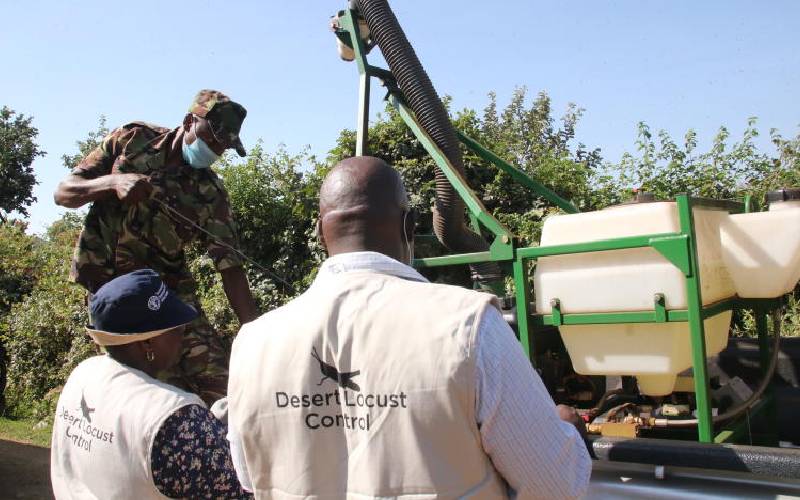
Kenya Defense Forces in charge of desert locust ground team Major Mark Odondo starts the Vehicle mount sprayers machine loaded with pesticides to control desert locusts in Meru county on February 17, 2021.[David Gichuru,standard]
It is hard to remember any decision that posed harm to Kenya as much as the recommendation before Parliament that it adopts the European Union’s (EU) policies on agricultural inputs and phases them out. It would be most disastrous and could cost us 20 per cent of our entire GDP, and countless lives.